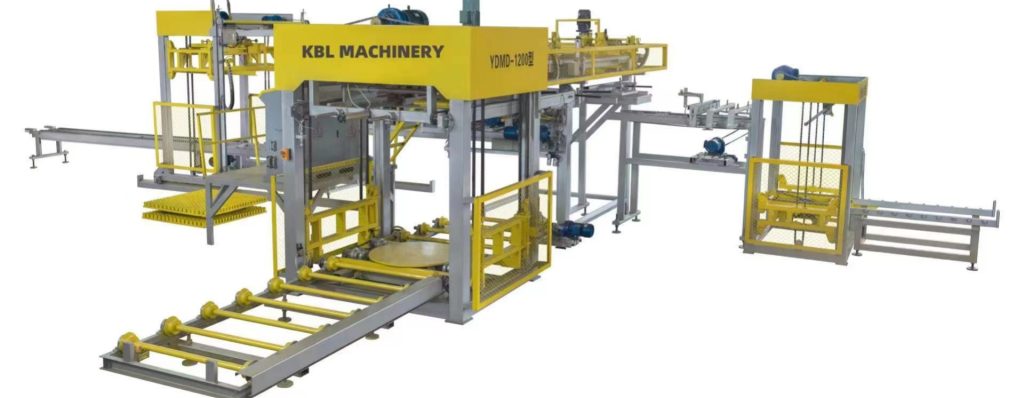What is a paver block machine?
October 24, 2024
A paver block machine is a piece of equipment used to manufacture concrete paver blocks for use in various construction applications, such as roads, driveways, and patios. The machine works by mixing cement, aggregates, and water to form a concrete mixture. This mixture is then fed into a mold where it is compressed and shaped into paver blocks. After the blocks are formed, they are cured to gain strength before being removed from the molds for use.

What types of materials can be used in a paver block machine?
Paver block machines typically use the following materials:
Cement: The primary binding material.
Aggregates: Fine aggregates (sand) and coarse aggregates (gravel or crushed stone) are mixed to give strength and durability.
Water: Used to hydrate the cement and facilitate the mixing process.
Admixtures: Optional additives can be included to enhance properties like workability, curing time, or durability.
How does the production process differ between manual and automatic paver block machines?
Manual paver block machines require human intervention for mixing, pouring, and compacting the concrete mixture into molds. This process is labor-intensive and can lead to variations in block quality due to human error.
Automatic paver block machines, on the other hand, automate the entire production process, from mixing to molding and curing. They are equipped with sensors and controls to ensure precise measurements and consistent quality. Automatic machines generally have higher production capacities and lower labor costs in the long run.
What are the typical production capacities of paver block machines?
The production capacity of paver block machines can vary significantly based on their design and automation level. Manual machines may produce around 1,000 to 3,000 blocks per day, while semi-automatic machines can produce 3,000 to 5,000 blocks per day. Fully automatic machines can achieve production rates of 5,000 to 10,000 blocks per day or more, depending on the machine’s specifications and the complexity of the block design.
What is the average cost of a paver block machine?
The cost of a paver block machine varies widely based on its type, capacity, and features. Manual machines can start at around $5,000 to $10,000, while semi-automatic machines may range from $15,000 to $50,000. Fully automatic paver block machines can cost anywhere from $50,000 to over $100,000, depending on the technology and additional features.
What are the key features to look for when choosing a paver block machine?
When selecting a paver block machine, consider the following features:
Production capacity: Match the machine’s output to your business needs.
Automation level: Decide between manual, semi-automatic, and fully automatic machines based on labor availability and efficiency.
Durability and build quality: Look for robust construction materials to ensure longevity.
Ease of operation and maintenance: Choose a machine that is user-friendly and easy to maintain.
Flexibility in mold designs: Ensure the machine can accommodate various block designs and sizes.
Cost-effectiveness: Assess the initial cost versus long-term operational costs.
What maintenance is required for a paver block machine?
Regular maintenance for a paver block machine includes:
Cleaning: After each production cycle, clean the machine to prevent concrete buildup.
Lubrication: Regularly lubricate moving parts, such as molds and hydraulic systems, to reduce wear and tear.
Inspection: Periodically inspect components for wear or damage, particularly molds, hydraulics, and electrical systems.
Calibration: Ensure that the machine is calibrated correctly to maintain production quality.
Replacement of worn parts: Replace any components that show signs of excessive wear to prevent breakdowns and maintain efficiency.
The paver block machine price can vary significantly depending on the type and capacity of the machine, ranging from basic manual models to advanced fully automatic systems. For businesses looking to invest in paving block making machines, it’s important to consider both initial cost and long-term operational efficiency. High-end machines may have a higher upfront cost but offer greater production capacity and durability, making them a more cost-effective choice in the long run.


